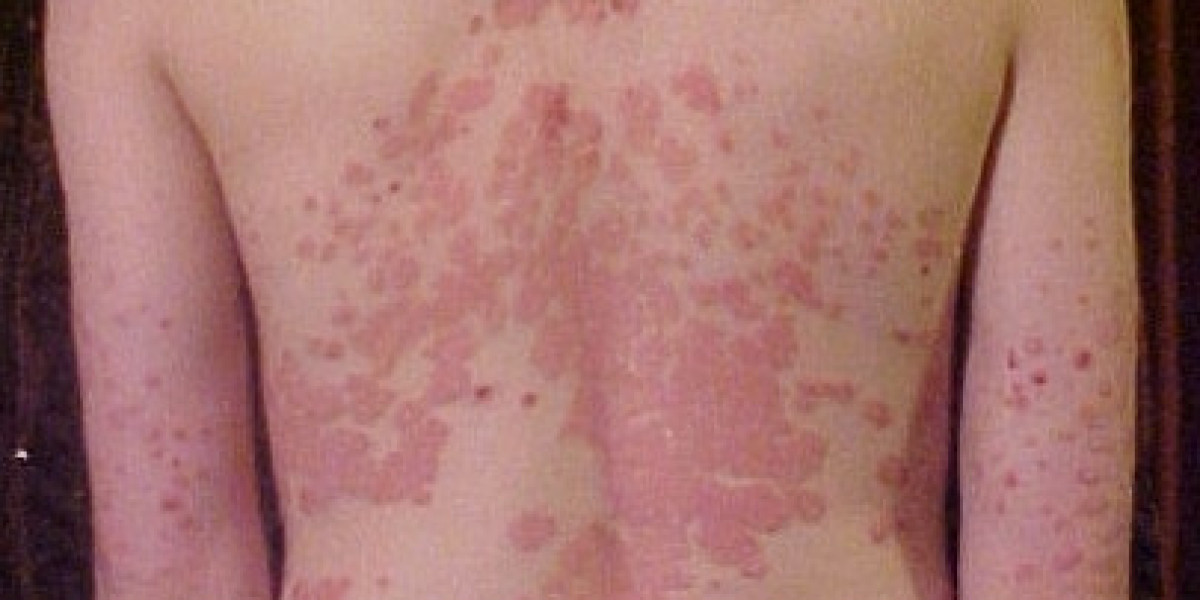Psoriasis is a chronic skin condition that affects millions of people worldwide. It causes the skin to become red, inflamed, and covered with flaky scales. While there is no known cure for psoriasis, effective management and treatment options can significantly improve symptoms and enhance quality of life. This blog explores various approaches to managing and potentially curing psoriasis permanently, with a focus on psoriasis treatment in Riyadh.
Understanding Psoriasis
What is Psoriasis?
Psoriasis is an autoimmune disease where the immune system mistakenly attacks healthy skin cells, leading to rapid skin cell turnover. This results in thick, scaly patches of skin that can be itchy and uncomfortable.
Symptoms of Psoriasis
The symptoms of psoriasis can vary but commonly include:
- Red, inflamed patches of skin covered with silvery scales
- Dry, cracked skin that may bleed
- Itching, burning, or soreness
- Thickened or ridged nails
- Swollen or stiff joints (in the case of psoriatic arthritis)
The Importance of Early Diagnosis
Benefits of Early Treatment
Early diagnosis and treatment of psoriasis can help prevent the condition from worsening. By managing symptoms early, individuals can reduce flare-ups and improve their overall quality of life.
Seeking Professional Help
Although there is no definitive cure for psoriasis, various treatments can help manage symptoms. It’s essential to consult a healthcare professional to determine the most suitable treatment plan for your specific condition.
Effective Psoriasis Treatment in Riyadh
Topical Treatments
Topical treatments are often the first line of defense in managing psoriasis. These treatments are applied directly to the skin and can help reduce inflammation and slow down skin cell turnover.
- Topical Steroids: These are anti-inflammatory medications that help reduce redness and swelling.
- Vitamin D Analogues: These help slow down skin cell growth.
- Coal Tar Products: These can reduce scaling and inflammation.
Systemic Treatments
Systemic treatments work throughout the body and are typically prescribed for more severe cases of psoriasis.
- Oral Medications: These include drugs like methotrexate, cyclosporine, and acitretin. They work by suppressing the immune system to reduce inflammation and slow down cell turnover.
- Biologics: These are a newer class of drugs that target specific parts of the immune system. They are administered via injection or infusion.
Light Therapy
Light therapy, or phototherapy, involves exposing the skin to ultraviolet (UV) light under medical supervision. This treatment helps to slow down the overactive skin cell growth seen in psoriasis.
- UVB Therapy: Uses UVB light to slow down skin cell growth and reduce scaling.
- PUVA Therapy: Combines UVA light with a medication called psoralen to enhance the effects of UV light.
Lifestyle Changes for Managing Psoriasis
Diet and Nutrition
Diet can play a role in managing psoriasis symptoms. Certain foods may trigger or worsen psoriasis, while others can help reduce inflammation.
- Anti-Inflammatory Foods: Foods rich in omega-3 fatty acids, such as fish and flaxseeds, can help reduce inflammation.
- Avoiding Triggers: Common triggers include processed foods, excessive alcohol, and high-sugar foods. Identifying and avoiding these triggers can help manage symptoms.
Stress Management
Stress is a known trigger for psoriasis flare-ups. Managing stress through techniques such as meditation, yoga, or regular exercise can help improve overall well-being and reduce flare-ups.
Skin Care Routine
Maintaining a proper skin care routine is crucial for managing psoriasis. This includes:
- Moisturizing: Keeping the skin hydrated can help reduce dryness and scaling.
- Gentle Cleansers: Using mild, fragrance-free cleansers can prevent skin irritation.
- Avoiding Harsh Products: Avoiding products with alcohol or strong fragrances can help prevent exacerbation of symptoms.
Exploring Advanced Psoriasis Treatment in Riyadh
Personalized Treatment Plans
A personalized treatment plan is essential for managing psoriasis effectively. This involves a combination of therapies tailored to the individual's specific needs.
Clinical Trials and Research
Participating in clinical trials can provide access to new and experimental treatments. Research into new therapies and approaches to managing psoriasis is ongoing, and clinical trials may offer promising options for individuals seeking a cure.
Support and Education
Patient Support Groups
Joining a support group can provide emotional support and practical advice for managing psoriasis. Connecting with others who have the same condition can be reassuring and offer valuable insights.
Educational Resources
Educating yourself about psoriasis and its treatment options can empower you to make informed decisions about your care. Resources such as online forums, educational websites, and books can provide valuable information.
Future Prospects for Psoriasis Cure
Advances in Research
Ongoing research into the causes and treatments of psoriasis holds promise for future advancements. Scientists are exploring new therapies, including targeted biologics and gene therapy, which could lead to more effective treatments and potential cures.
Hope for a Cure
While there is currently no permanent cure for psoriasis, advancements in treatment and management options offer hope for improved outcomes and a better quality of life for individuals with the condition.
Conclusion
Managing psoriasis effectively requires a multifaceted approach, including appropriate treatments, lifestyle changes, and ongoing research. By exploring various options for psoriasis treatment in Riyadh and incorporating lifestyle adjustments, individuals can significantly improve their symptoms and overall quality of life. While a permanent cure remains elusive, effective management strategies can help individuals lead fulfilling lives and reduce the impact of this chronic condition.








